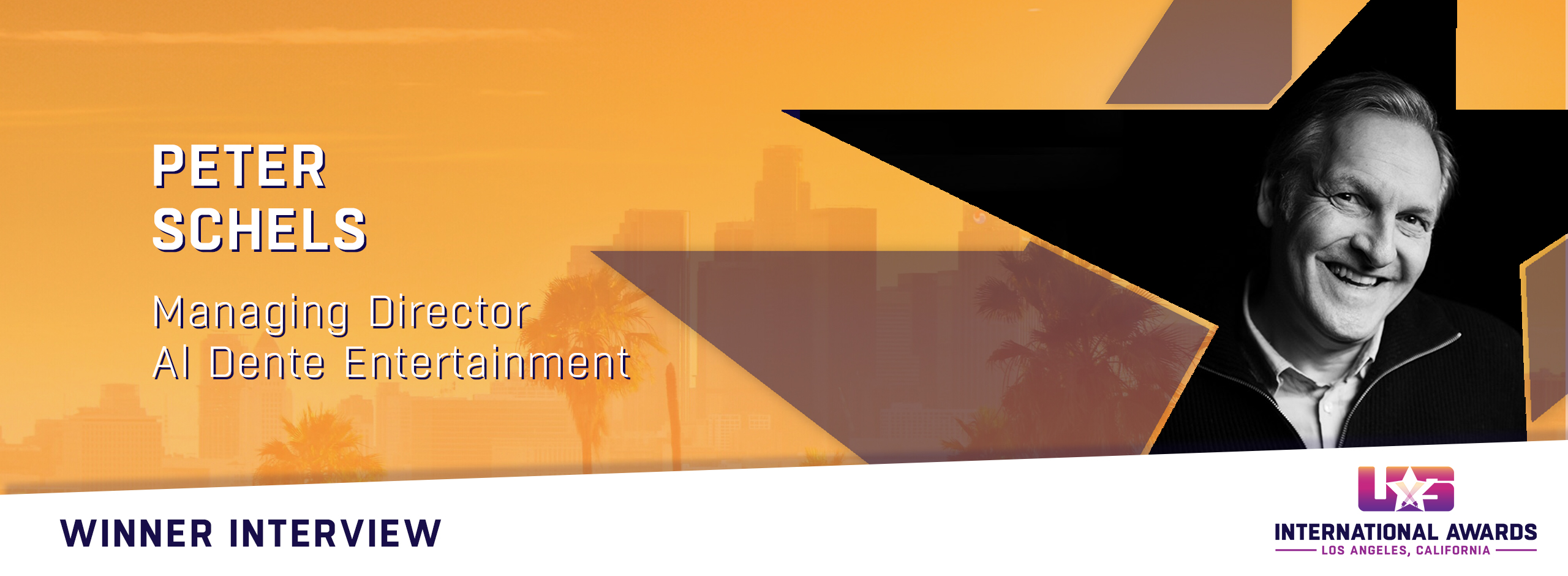
We are thrilled to speak with Peter Schels, CEO of Al Dente Entertainment, one of the leading film agencies in German-speaking Europe specializing in corporate filmmaking. Under Peter’s leadership, Al Dente has produced over 500 productions and campaigns worldwide, earning numerous national and international accolades along the way. Since founding Al Dente Entertainment in 2004, Peter has become a sought-after speaker and lecturer on storytelling, recruiting, and employer branding. This year, Al Dente Entertainment has made a remarkable mark at the 2025 US International Awards, taking home multiple honors including Best Cinematography, Best Editing, three Silver Awards, Best Production Company, and Best Agency.
Congratulations on your multiple awards and your two Specialty Awards “Agency of the Year” and “Production Company of the Year”! What does it mean to you, your team, and all the people involved in this project to receive these awards?
That’s a fantastic impact on all of us! It’s a concrete recognition of our work - not only for those directly involved in these projects but for all our colleagues at Al Dente Entertainment.
Can you run us through the creative process behind the winning projects you entered into the 2025 US International Awards?
“Normal at INTERNORM” is clearly inspired by Wes Anderson and his unique way of telling stories and creating visuals. We love the fine art of humor, and many companies call us due to create humorous corporate videos.
The basic line for our other project “What does a good life mean?”, was developed by B2B brand agency Kaapke. We had a fantastic collaboration with them as well as with our client, The Wernsing Food Family. From this very human question, we found a way to tell the whole story and convey the values on an international level.
We are proud of both projects because they are so different, yet equally convincing, surprising, and emotional.
The biggest challenge in both cases was convincing members of the management boards to have the courage to try something new. The success we’ve achieved now is the best proof of that. In many ways, these awards also celebrate the courage of our partners.
What were your expectations when entering? Did you assume you would be in the race for a Specialty Award?
We always enter competitions with the goal of winning - we’re far too ambitious to just participate. But the Specialty Awards were absolutely unexpected. Since we love surprises in our films, it’s very cool to be the ones surprised this time!
Now, please tell us something about yourself. Can you give us a brief bio and disclose your background?
I prefer to highlight my incredible colleagues: Fabian Prager, an exceptional editor who invented timing and rhythm. Johan Munsberg, our DoP, who oversaw both films, is always ready to try something new, and is never satisfied. And last but not least, Felix Weber, who directed both films. He has an attitude of professionalism and at the same time so much artistic intelligence and creativity. Also crucial are our heads of production, Max Munzinger and Anna-Maria Brandt. Without these people, projects like this simply can’t happen. And the list goes on — all truly great and talented individuals.
What are some of your works that played a major role in your professional career or that deem to be important to you?
We once created “The Mother of All Imagefilms”, a satire about the generic ways corporate videos are made, which boosted our company’s visibility in the media and on Google for years. It was a big corporate film about a single fruit-and-vegetable seller in Munich — a true gamechanger.
Later, we worked on “The Double Imagefilm” for agricultural machinery producer Grimme, “The Leonhard Weiss Experiment”, and “Nothing to Hide” for DBL. In fact, there are quite a few films we’re proud of.
What was the most challenging project you worked on so far?
Puh, many… I remember a corporate documentary about transporting a huge magnet worth one billion euros through the Alps via tiny roads in heavy snowfall. Eventually, we were even able to use NASA footage from when the magnet was launched into space. Later, NASA wanted our film for its own website.
Can you describe your creative process for us?
First: inspiration. We watch a lot of international content, like what you see in awards like yours, but also explore other channels. Inspiration can come from art, movies, television, literature — you name it. I think being curious and open-minded helps a lot.
Second: creation. Having tons of ideas and immediately trash them, that’s part of the deal. When you hit it, you feel it in the same second. My advice: Have fun in developing ideas and be a little anarchic and crazy.
In your opinion, what makes a “good” corporate video? And how important is branded video content for brands?
Haha, that’s almost the question of one of our films! To answer generically: if it’s good, it’s good. I’d say the most important elements are the story and the surprise. A “good” corporate video has an emotional impact on the people who watch it.
Branded content will become even more important in the coming years. A strong brand is one that tells a story. The hero isn’t the brand itself, but the person who needs the brand to achieve their goals. Storytelling needs video, and video needs storytelling — brands simply can’t do without it.
What advice would you give to aspiring filmmakers and video creators looking to enter competitions and make a mark in the industry?
Be courageous! Try something new! Focus on storytelling, authenticity, and emotion. And only create films that you yourself want to see!